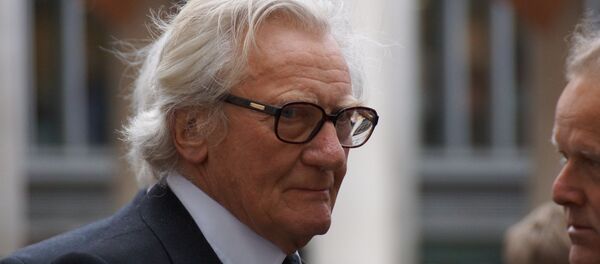The British political polling company YouGov has conducted a survey which suggests as much as 25 percent of Labour voters oppose the party's policy of backing the UK's exit from the European Union and could change their voting intention as a result.
The poll, seen by the British Guardian newspaper, also seemed to show even splits among the party's supporters on what Labour's position actually was, with roughly a third each believing the party as a whole was totally in favor of, and in opposition to leaving the EU, while the remainder believed their position was somewhere in between the two.
YouGov's survey, carried out between December 17 and 19, was commissioned by the organization Best For Britain (BfB), which comprises mainly Labour and Liberal Democrat MPs who advocated for the Remain Campaign in the 2016 Brexit referendum.
Former Deputy Prime Minister Lord Heseltine has suggested a Labour government led by Jeremy Corbyn could be less damaging than Brexit. Is he right? pic.twitter.com/0eRdCEtTFe
— LBC (@LBC) 27 December 2017
Corbyn Opposed to Second Referendum
Mr. Corbyn reiterated his position on December 28 that Labour does not favor the holding of a second EU referendum, despite calls for one from the Liberal Democrats and former Conservative Deputy Prime Minister Michael Heseltine expressing hope a future Corbyn-led Labour Government would abandon Brexit entirely when it becomes sufficiently unpopular.
"The idea that the second referendum is something that many people want, but many people are concerned about because they don't think it would actually solve the issue. I think the issue has to be dealt with by negotiation and by a meaningful vote in Parliament on what it is. We're in the middle of an Article 50 process therefore, we've declared we're leaving the EU, the question is the future relationship with the EU that we have," he said during an interview on LBC radio.
A @YouGov poll shows that a quarter of @UKLabour voters could switch party if they continued to back #Brexit. Two thirds of those who voted #Remain said they would be disappointed or angry if Labour said it would proceed with Brexit.
— Graham Simpson (@grahambsi) 28 December 2017
Labour's unexpected surge of electoral support in the run-up to the 2017 General Election came at least in part, according to observers such as BfB, due to Remain supporters tactically voting against what they feared would be a hard Brexit under a Conservative Government with an increased majority.
On December 27 Labour leader Mr. Corbyn faced renewed pressure from London-based Labour MPs to reverse the party's support for Brexit, fearing their seats could be vulnerable at the next election.
London, along with Scotland and Northern Ireland voted overwhelmingly in favor of remaining in the EU, while England and Wales voted to Leave.
On December 15, Brussels gave the go-ahead for the next stage of Brexit negotiations, centered around a future trade relationship, which could begin after UK Prime Minister Theresa May clinches a deal on the prevention of a hard border emerging between Northern Ireland and the Republic of Ireland.



